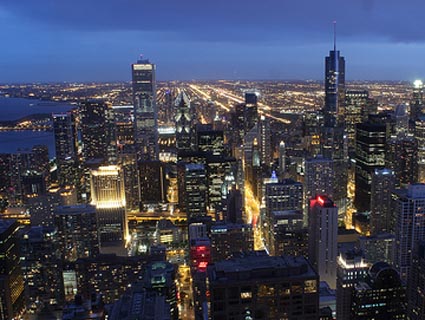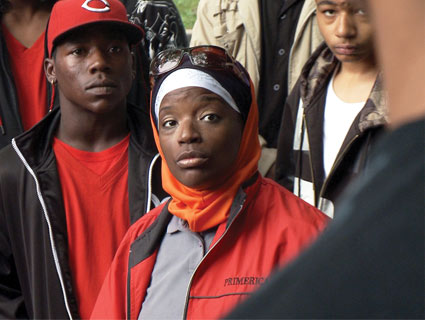Things have gotten so bad recently on the streets of South and West Chicago, Chi-town has earned a new moniker: “Chiraq.” But the city’s troubles with gun violence are old news—see our earlier chat with the filmmakers behind The Interrupters—and we’ve become desensitized. This gripping new documentary short, titled Chi Raq, by London-based filmmaker and photographer Will Robson-Scott is sufficient to shake you from the comfort of your armchair liberalism and give you a fresh dose of reality as it applies to Chicago’s poorest neighborhoods. I caught up with Robson-Scott to find out how he navigated these dangerous streets, and get his take on what’s wrong with America.
Mother Jones: A refreshing thing about your documentary style is that you don’t seem to have an agenda: You just take a complex issue and focus on those affected by it. Are you trying to help us understand what’s happening in Chicago at a more visceral level?
Will Robson-Scott: The statistics speak for themselves. It’s really easy to demonize a group of people through those statistics. But at the end of the day you can’t really judge unless you actually were brought up in those surroundings. There’s nothing to say that if I didn’t grow up in South or West Chicago that I wouldn’t be doing the same thing, because if that’s all you know when you’re growing up, that’s all you know.
I’m from London, but I’ve been living in New York for the last two years on and off, and to be honest, the people in Chicago were more open and friendly than the average New Yorker or Londoner. Everyone was super friendly, man—even the craziest and wildest kids were intrigued. Like, there was this sigh when I’d get out of the car and they’d see this white guy, and then I’d open my voice and they’d be like, “Where the fuck are you from?” They were completely baffled by me at first, because most of them have never met an English person in their life. I think being English helped a bit, to be honest. It’s a bit more exotic than some guy from Fox News with an agenda. I was more in people’s lives than the normal news reporter might be.
MJ: So from your English perspective, what does Chi Raq tell us about what’s wrong with America?
WRS: The obvious thing is the availability of guns. It’s the issue. If you didn’t have that many guns, there wouldn’t be that many murders. The crazy thing is that the gun laws in Chicago are strict…But it doesn’t matter because it borders, like, Gary, Indiana where you can go into a store and buy a gun.
MJ: Guns are a factor, drugs are a factor, but there’s something else that seems unique to Chicago.
WRS: I know a dude who has been all over the world shooting stuff for Vice—they did a thing in Chicago called “Chiraq,” as well, which was a bit annoying, but whatever. He said he saw less hope in Chicago than he did in, like, Libya. To be honest, I can’t give you the causes of what it is. It’s a simple thing of, like, jobs, family structure, role models, education, diet—it’s just hope at the end of the day. I don’t wanna say there’s no hope, but I don’t know, man.
[Learn more about Will Robson-Scott’s experiences in Chicago and see the photographs in the accompanying Chi Raq zine.]











